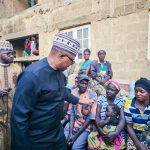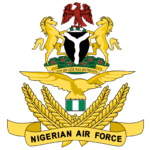Racism, social media are motivators for New Zealand mosques attacks – Reports

Racism and social media have been fingered as chief motivators of the shootings at two mosques in the New Zealand city of Christchurch Friday in which 49 persons were killed in what appeared to be a carefully planned “terrorist” attack. The attacks included a lengthy anti-immigrant manifesto and live streaming of the carnage.
More than 20 people were seriously wounded in the racist rampage. One of the suspects had already appeared in court on Saturday but he remained mute. He is to be kept in custody till next court sitting.
Social media managers also got a scathing as they did little to stop the video going viral. Facebook was particularly criticised for allowing the video to live-streamed for 17 minutes and staying up to 60 minutes before it was pulled down. Facebook claims it constantly polices its network to ensure fatal and terror posts of this nature do not thrive there.
One person, a self-proclaimed racist who described himself as a 28-year-old Australian, was arrested and charged with murder and two others were detained in what Prime Minister Jacinda Ardern called “one of New Zealand’s darkest days.”
“It is clear that this can now only be described as a terrorist attack,” Ardern said.
The Australian suspect, who claimed responsibility for the shootings, left a 74-page manifesto against immigrants and used a helmet-mounted camera to capture footage of the killings.
Australian police identified the suspect as Brenton Tarrant, a white male whose name was also used by the shooter in his 17-minute live video, the Herald reports.
The suspect later made a brief court appearance, lasting only about a minute before District Court Judge Paul Kellar.
He registered no expression as a charge of a single count of murder was read and he was ordered to be returned April 5. Other charges are expected later.
The video shows the gunman saying “Let’s get this party started” before walking in the front door of the Al Noor mosque and opening fire. After three minutes, he returns to his vehicle for more ammunition and goes back into the mosque and opens fired again, according to the New Zealand Herald. It ends with him driving away from the scene at high speed.
New Zealand Police Commissioner Mike Bush confirmed that video of the shooting had been circulating on social media. Facebook said it had taken down the gunman’s Facebook and Instagram accounts and was attempting to remove any copies of the video.
One unidentified survivor told TV New Zealand that the gunman, wearing black and carrying an semi-automatic weapon, appeared to target the men’s prayer rooms at the Al Noor mosque on Deans Avenue first, opening fire on worshipers, before moving on to the women’s section.
In his lengthy manifesto, the gunman said he was first pushed toward violence while touring Europe in 2017 after an Uzbek man drove a truck into a crowd of people in Stockholm, killing five people, including an 11-year-old Swedish girl.
He said his desire for violence grew when he arrived in France, where he became enraged by the sight of immigrants in the cities and towns he visited.
He said New Zealand, far from Europe, was not the “original choice for attack,” but described it as “target rich of an environment as anywhere else in the West.”
The dossier, which was described by Australian Prime Minister Scott Morrison as a “work of hate,” hailed Trump as “a symbol of renewed white identity and common purpose.”
He said he was carrying out the attacks, “to directly reduce immigration rates to European lands by intimidating and physically removing the invaders themselves.”
By choosing Christchurch, he wrote, he would show that no place on earth was safe and that even a country as far away as New Zealand is subject to mass immigration. He said he settled on his target three months ago.
Asked at an Oval Office meeting Friday whether he sees rising white nationalism, Trump responded, “I don’t really. I think it’s a small group of people.”








